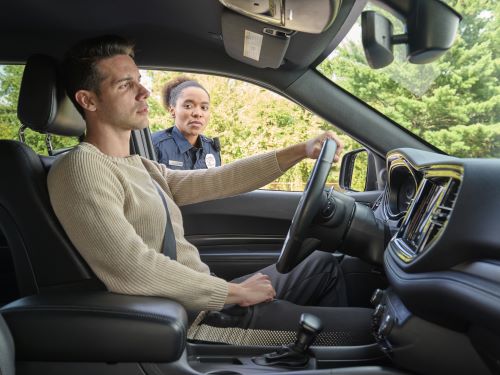As summer winds down, you’ve probably noticed an increase in police officers out on the road. This time of year is when the nation focuses on the "Drive Sober or Get Pulled Over" campaign. This campaign aims to reduce the number of impaired driving collisions and fatalities by increasing police presence and cracking down on impaired drivers.

Law enforcement has a number of ways to find drinking and impaired drivers. One way is through chemical tests of the driver’s blood, breath, or urine if they’re arrested under the suspicion of impaired driving. But what happens if you refuse to submit to a chemical test?
The Implied Consent Law
When you earn your driver’s license, you are automatically agreeing to take a sobriety test and chemical test at an officer’s request in the event you’re stopped by police while driving. Chemical tests use blood, breath, urine, or saliva to measure the amount of alcohol or other drugs in someone’s blood. This is called the "Implied Consent" law.
Of course, you still have a right to refuse to submit to a chemical test, but there are penalties if you do so. These penalties are in addition to penalties imposed after being convicted of an alcohol or drug-related traffic violation. Refusal may be used as evidence against you in court.
Legal Penalties for Impaired Driving
The penalties for impaired driving convictions depend on your state and the severity of the offense. Here are some common penalties:
- Driver’s license suspension. This is the most common penalty for impaired driving. For a first offense, a license suspension is usually about six months to a year.
- Fines. Fines for impaired driving can be substantial. For a first offense, fines typically range from $500 to $1,000. For subsequent offenses, the fines can be much higher.
- Ignition interlock device. An ignition interlock device is a breathalyzer that is installed in a vehicle’s ignition. The driver must blow into the device before starting the car. If the driver’s blood alcohol level is above a certain level, the car will not start.
The legal penalties are severe, as they should be.
Alternatives to Impaired Driving
Here are some alternatives to driving while intoxicated:
- Designate a sober driver who won’t drink or use other drugs that day so they can safely drive everyone home.
- Call a cab or a rideshare service, or a trusted friend or family member to pick you up.
- If you’re at a party, consider sleeping over rather than driving home at night when you’re impaired.
- Decide not to drink or use other drugs while out when you know you’re not going to be able to get home safely.
Stay safe by planning ahead when you know you’re going to be drinking to make sure you’re not forced to decide whether or not to drive while your judgment is impaired. If you’re going out with friends, make sure ahead of time that you’ll all be able to get home safely. Never get in the car with a driver who’s intoxicated, and if you can, urge them not to drive while intoxicated, either.
Are you interested in learning more about traffic safety?
Are you looking for defensive driving and traffic school courses? Do you want a discount on your auto insurance? Do you know a teen who’s ready to take an online driver education course?
Safe2Drive is here to help! We offer convenient online courses for drivers of any age! Visit our website today to learn about the online courses we offer in your state.